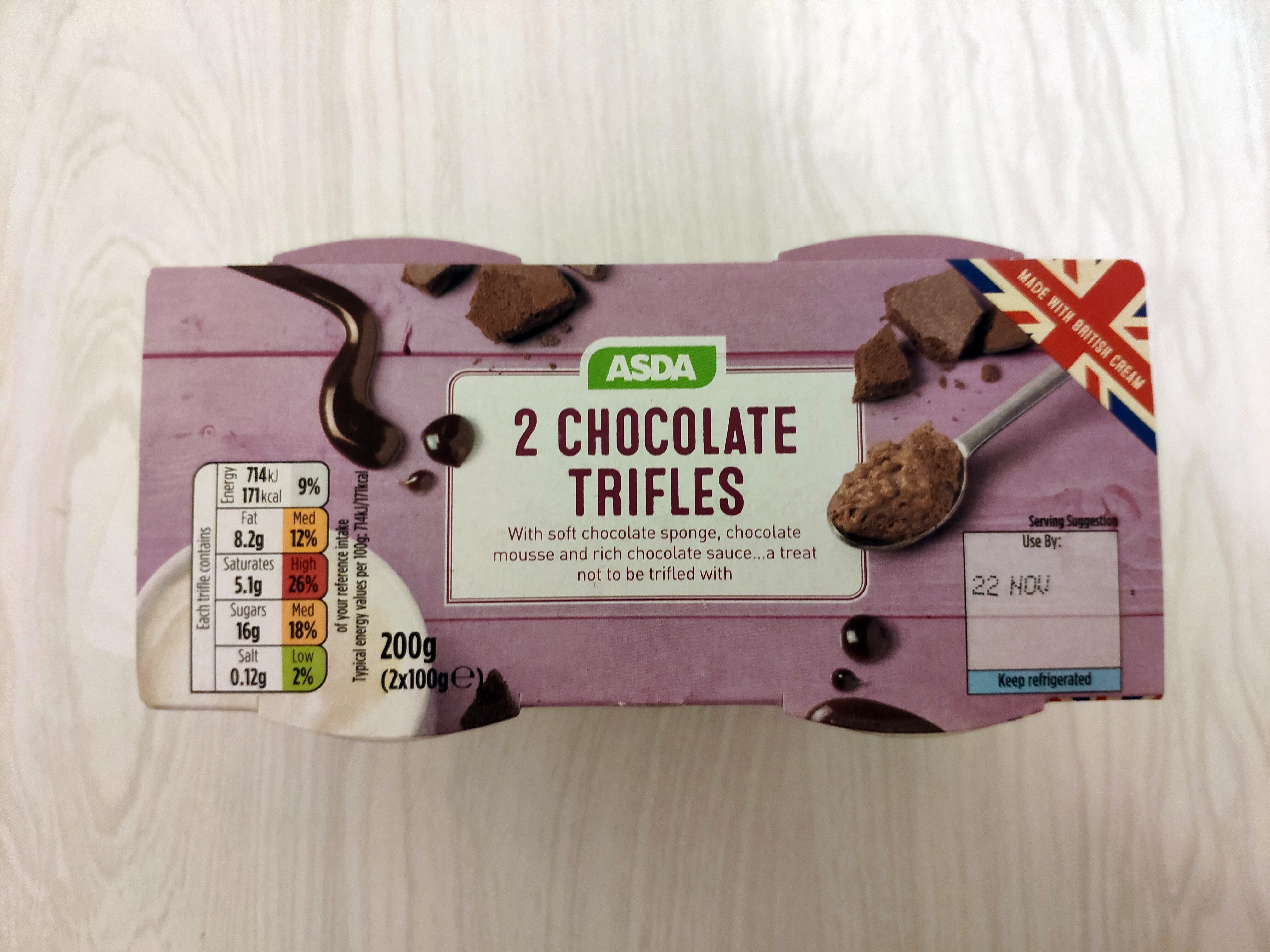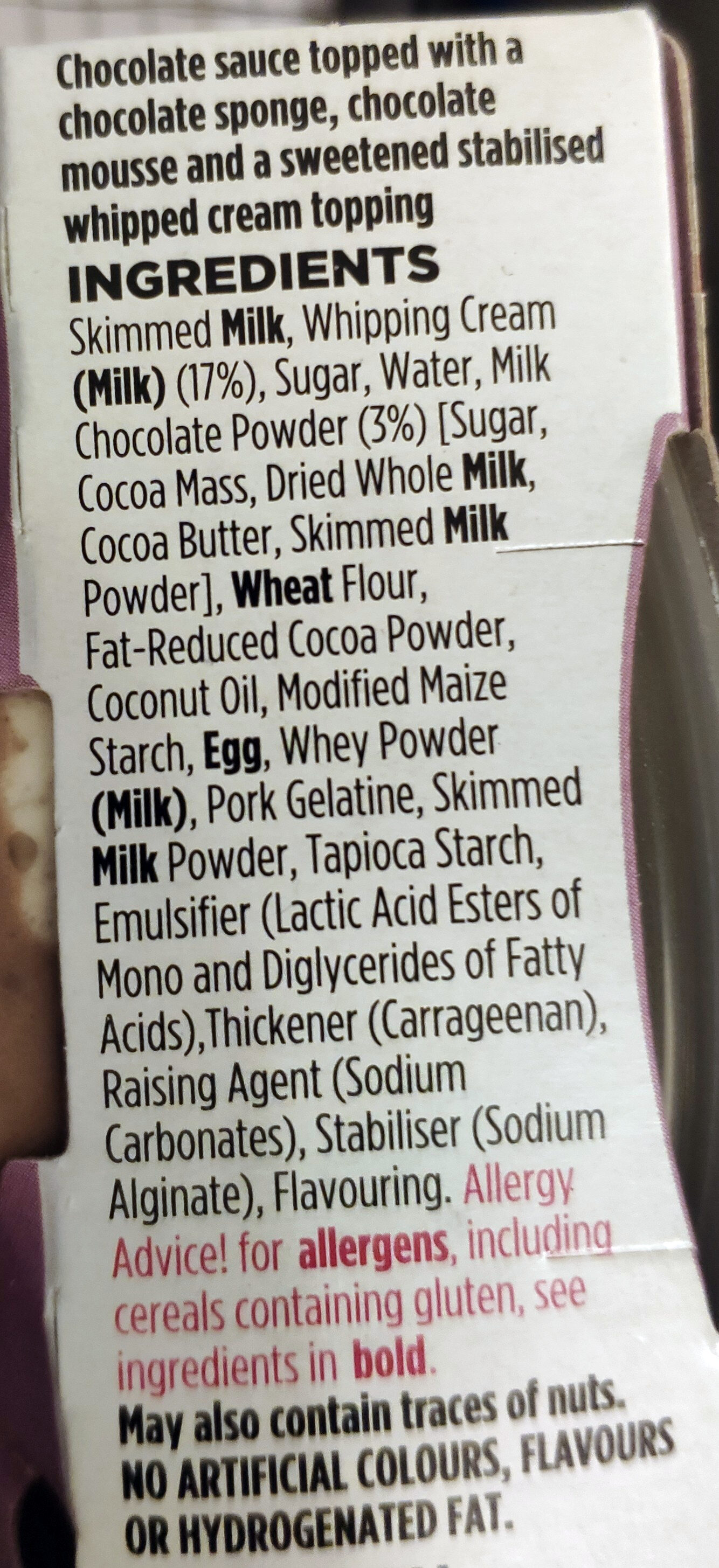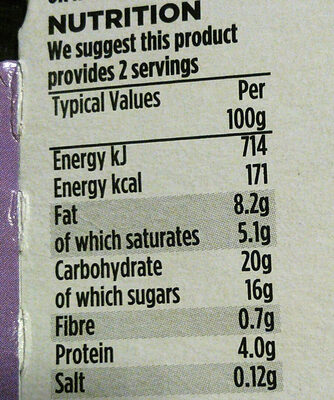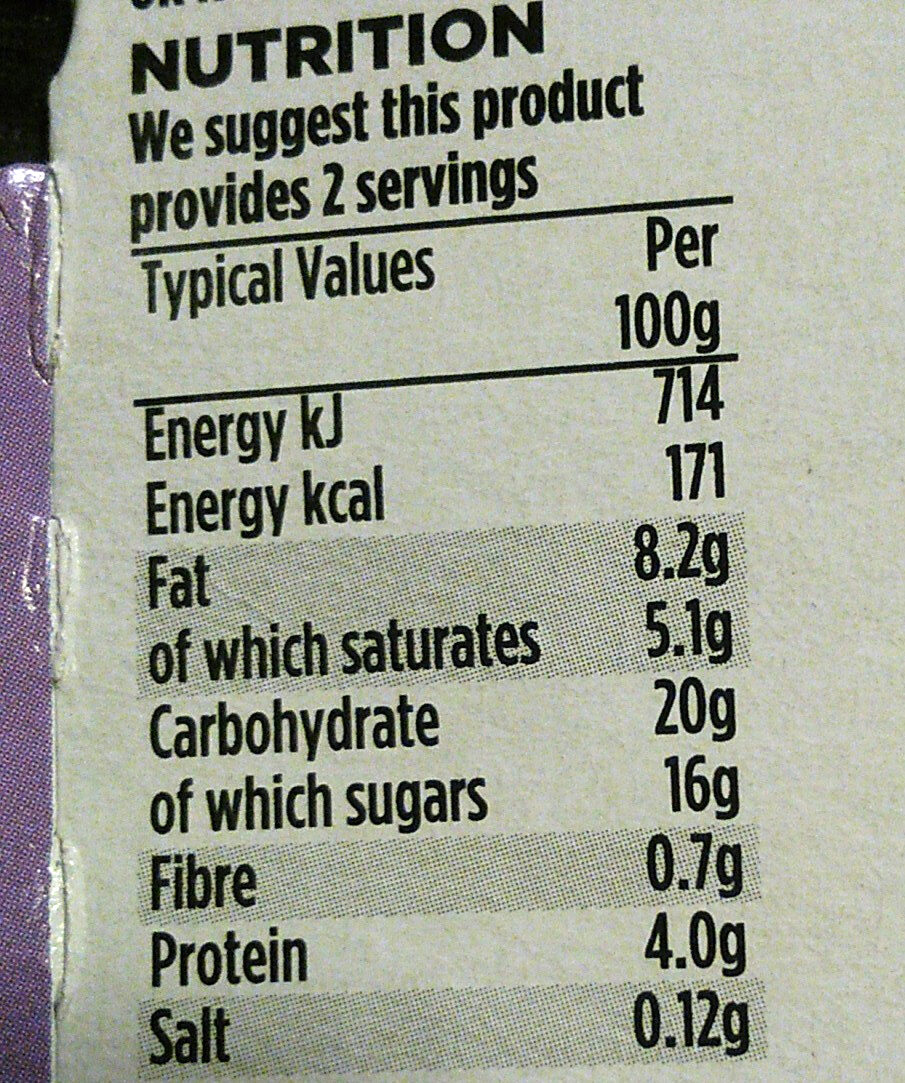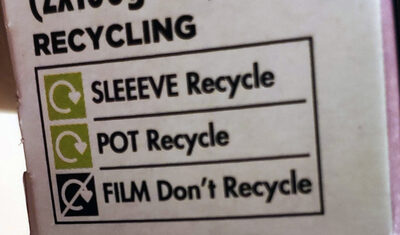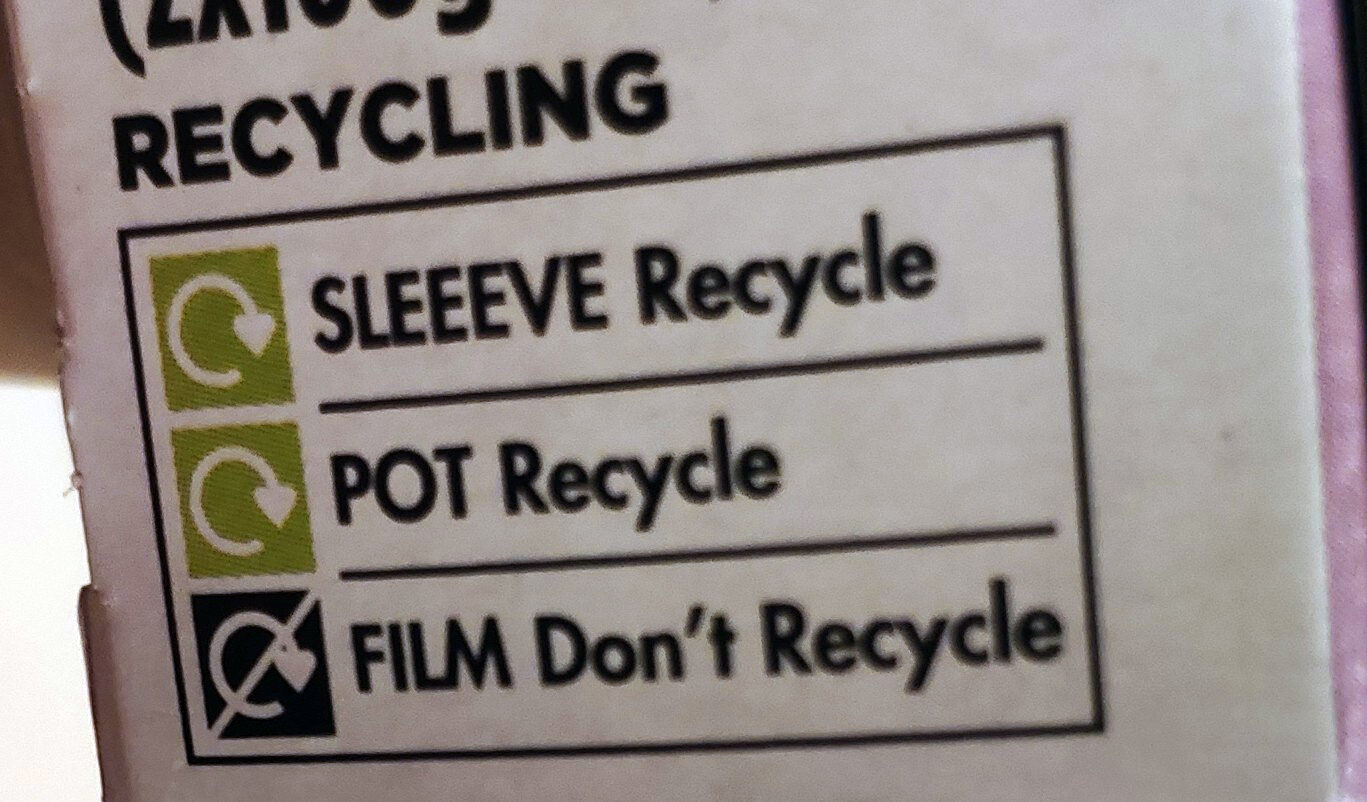Chocolate Trifles - Asda - 200g
This product page is not complete. You can help to complete it by editing it and adding more data from the photos we have, or by taking more photos using the app for Android or iPhone/iPad. Thank you!
×
Barcode: 5057172135424 (EAN / EAN-13)
Common name: Chocolate sauce topped with a chocolate sponge, chocolate mousse, and a sweetened stabilised whipped cream topping
Quantity: 200g
Packaging: en:Plastic, en:Pot, en:Cardboard
Brands: Asda
Categories: en:Dairies, en:Desserts, en:Dairy desserts, en:Chocolate desserts, en:Trifles
Labels, certifications, awards: en:No artificial flavors, en:No artificial colors, en:No artificial colours or flavours, en:No hydrogenated fats
Traceability code: GB MZ 006
Stores: Asda
Countries where sold: An Rìoghachd Aonaichte
Matching with your preferences
Report a problem
Data sources
Product added on by baggypants
Last edit of product page on by moon-rabbit.
Product page also edited by alia, ecoscore-impact-estimator, off.7f6b26cf-91cf-4b76-904c-95bb752f0da9, openfoodfacts-contributors, packbot.

